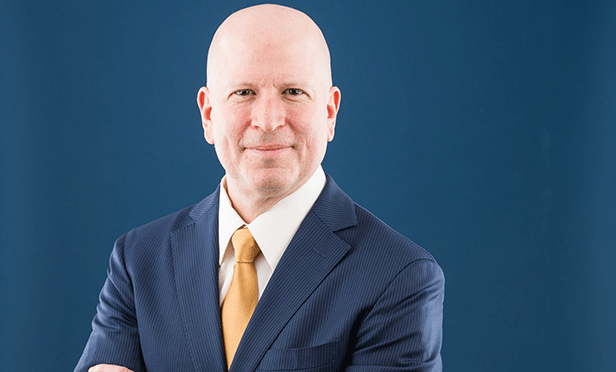The general mood of the panel following 2009--a year all about muddling through and waiting for the market to bottom--was hopeful for a challenging but better 2010 and an even better 2011. "Things have changed a lot. Things are a lot better than they were a year ago," said Ken Cruse, CFO of Sunstone Hotel Investors Inc. "There still isn't a crystal clear path as to how we are going to get out of this, but we are certainly going to improve. We are all excited to be focusing on offensive measures instead of defensive measures."
Where was the Crystal Ball?
When Desiato asked panelists if any of them could have predicted this downturn, Jon Bortz, chairman and CEO of Pebblebrook Hotel Trust, noted that everyone knew there would be some sort of downturn coming, "but I don't know anyone in our industry that predicted the extent of it," he said.
Reynolds agreed with Bortz, noting that in the beginning, "People were kind of reacting to this debt dip and didn't take it very seriously…they probably thought it would be a blip for several months, but then it got worse." John Phillips, CFO of Pacifica Cos., said that he was surprised by the occupancy drop across the whole sector of Pacifica's portfolio.
Revenue Projections
Most markets across the country are still down today, said Reynolds. "Rate is going to be off." He noted that New York City has plenty of occupancy right now, but rates are still off substantially across the entire inventory of 60,000 rooms in the city. "Most of us budgeted that this year will be modestly up on occupancy, but still way off on rates."
It is pretty hard to be positive in terms of revenue this year, said Bortz. "There is a tremendous amount of competition…because there is so much availability. Until that [availability] changes, we are going to continue to see rates under pressure."
Activity, the Turnaround
According to Bortz, time is what it will take to get out of the mess. "If you look at the trends today, we think demand will be up 3%, 4% maybe even 5% this year." He added that his company lost a lot of money last year from business travelers, but he is seeing them come back. "We still have some supply growth as well," he said. "But 2011 looks a lot better from a supply perspective."
Traditionally Thayer over the last 25 years has been pretty disciplined about being a value-add investor in real estate assets, said Reynolds. There has been a large fund to buy hotels, he said, but the problem is that there has been no visibility on operating performance. "We have continued to look actively at assets and see growth opportunity," he said. "But this is a slow climb out in terms of transaction volumes and sellers are trying to reserve their ability not to sell and not take the hits."
Phillips said that Pacifica Cos. has been buying a lot of distressed assets over the past year, but not just in the hospitality industry. "We haven't really gotten into the hotel space because we just don't know where the bottom is," he said. "We aren't into the loan-to-own specifically…Unless we really like the asset, we won't keep it."
Cruse said that his company has been giving back hotels. "Everything we do is aimed at maximizing values for our stockholders and the right answer for the stockholders was to give back the assets," he said. "Last year we embarked on a secured debt restructuring program, among other things, which was basically designed to unlock negative equity situations." He continued that before an asset can even enter into the company's renegotiation program, it has to meet two criteria: One is to have the cash flows from the asset fall short; the second criterion is that the whole value of the asset has to fall short of the whole volume of the loan. "When those two conditions are met, we are obligated to our stockholders to address it."
Bortz, who just raised a $350 million IPO, said that he doesn't really know when assets are going to be available. "We think a rational view is that as 2010 goes on, we will see more transactions," he said. "It takes time. It is always unrealistic to believe that there's an initial flood of distressed assets because there is a dance that goes on; there are lots of discussions that are short-term extensions; there's staffing-up required." He continued that, "We aren't looking for blood in the water or distressed assets per se, we are looking for good assets in good locations with historically attractive prices."
Administration
In regard to the current administration, Phillips said he was happy "they were able to secure the financial industry and keep it from disappearing overnight. We are happy they are trying to bring back the CMBS market because we think the CMBS market is a lot better than banks…And we are happy at the leverage ratios that they would, under good circumstances, give you." But he noted that he isn't so happy on the job growth side.
"What was done was absolutely critical, not just for the financial industry, but for the whole world," said Bortz. "It saved the economy from going into a global depression." But he noted that that is basically the role of the government and "it is the same government that played a role in us getting to that point. There was a lack of regulation." He continued that as the economy gets to a place where it begins to work, the government needs to get out of the way and let it happen on its own.
Continue Reading for Free
Register and gain access to:
- Breaking commercial real estate news and analysis, on-site and via our newsletters and custom alerts
- Educational webcasts, white papers, and ebooks from industry thought leaders
- Critical coverage of the property casualty insurance and financial advisory markets on our other ALM sites, PropertyCasualty360 and ThinkAdvisor
Already have an account? Sign In Now
© 2024 ALM Global, LLC, All Rights Reserved. Request academic re-use from www.copyright.com. All other uses, submit a request to [email protected]. For more information visit Asset & Logo Licensing.








